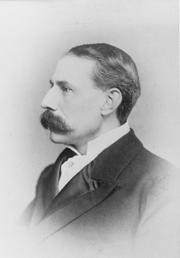On this date in 1857, British composer Edward Elgar was born in England. Raised as a believing Roman Catholic, he discarded his faith toward the end of his life. Most of his earlier works were religious in nature, such as “The Apostles” and “The Kingdom,” intended to be part of a trilogy, which Elgar never finished. “Pomp and Circumstance” is one of his famous compositions.
Biographer Byron Adams wrote, “Paradoxically, the excursion into biblical exegesis that Elgar did during the creation of ‘The Apostles’ and ‘The Kingdom’ could have played a part in the unraveling of the composer’s already frayed beliefs.”
When Elgar was unconscious due to heavy doses of morphine for cancer pain, his daughter summoned a priest. His biographer writes, “Elgar died on 23 February 1934 and was buried next to his wife in the cemetery of St. Wulstan’s Roman Catholic Church in Little Malvern.” He had requested cremation and that his ashes be scattered, which conflicted with Catholic doctrine. (D. 1934)


